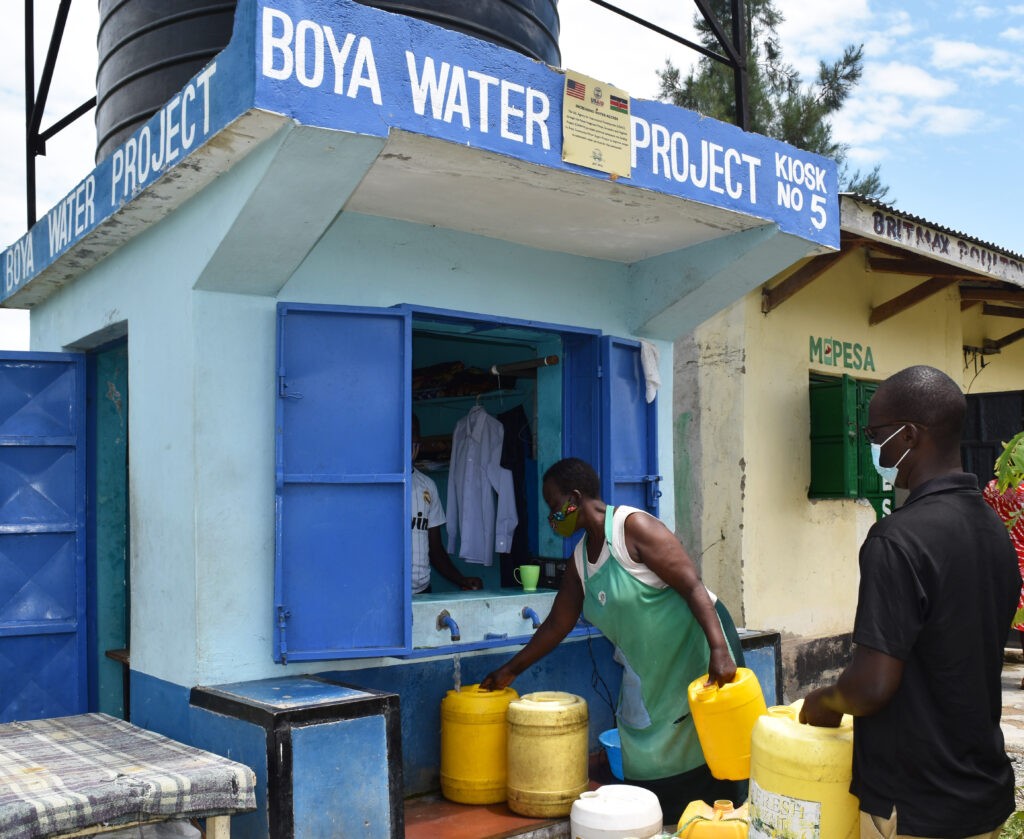
The USAID-funded Kenya Integrated Water, Sanitation, and Hygiene (KIWASH) Project aimed to enhance the lives of more than 1 million Kenyans through access to improved sustainable water, sanitation and hygiene (WASH) services. The KIWASH Project promoted the scale-up of market-based WASH service delivery models. As a subcontractor to DAI, DIG assessed and strengthened the capacity of hundreds of small-scale, private water and sanitation providers (WSPs) to offer WASH services and products in nine focus counties. DIG led this work in close collaboration with the respective county governments. Ultimately, the KIWASH Project resulted in healthier and more prosperous communities throughout Kenya.
Results to Date
- DIG has been building the capacity of 231 WASH enterprises, of which 37 are sanitation enterprises and 194 are water enterprises.
- DIG trained and coached 985 county WASH staff and staff members working for 231 WASH enterprises.
- DIG strengthened the WASH enterprise staff members’ knowledge and skills in financial planning; customer service; marketing; accounting; computer literacy; gender inclusiveness; operations; and maintenance.
- Each WASH enterprise developed three- to five-year business plans to expand services.
- An additional 510,000+ people gained access to clean drinking water.
- On average, the enterprises improved water sales by increasing water provision from 8 hours to 10 hours per day.
- Water supply increased from 2,376 cubic meters to 3,322 on monthly basis.
- The WASH enterprises increased their sales from KES 142,038 to KES190,916 (USD 1,297 to 1,743).
- A total of 134 enterprises expanded their business during the life of the program.
- The program built capacity and established partnerships with three local banks and one MFI to support WASH enterprises.
- A total of KES 12,049,078 (USD 111,000) was disbursed for 5 WASH enterprises.
- WASH enterprises benefitted from infrastructure investments, which resulted in the implementation of 62 WASH projects of which close to half helped community members mitigate the effects of the COVID-19 pandemic in 9 counties.
- The program also helped institutionalize business development services (BDS) in County Government Structures and BDS Providers for Sustainability. (2015-2021)
Related Projects
- Global Program for Inclusive Municipal Governance (GPIMG)
- Kenya Integrated Water, Sanitation, and Hygiene Project (KIWASH)
- Liberia Collaborative Support for Health Systems Strengthening
- Liberia Municipal Water Project (LMWP)
- Market Assessment of Fecal Sludge Providers in Douala, Cameroon
- Municipal Waste Recycling Program (MWRP)
- Strategic Support for Water, Sanitation, and Hygiene Investments in Ethiopia
- Sustainable Water and Sanitation in Africa (SUWASA)
- Urbis – Urban Capacity Learning Laboratory
- WASH Coordination Project (WCP)
